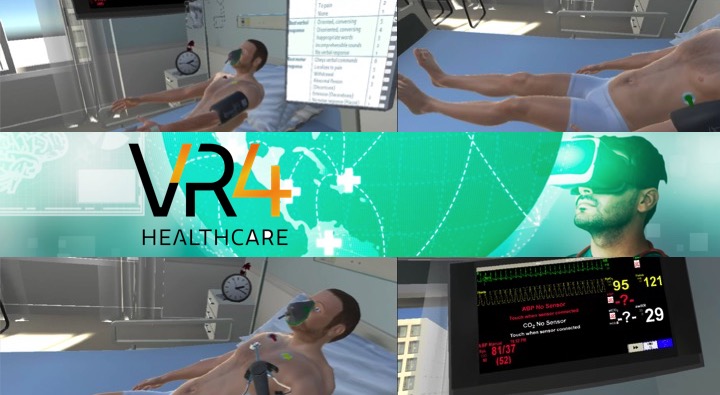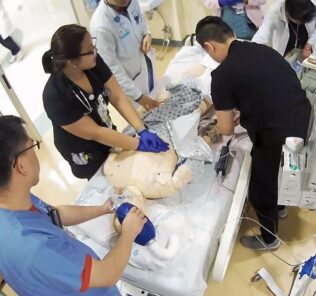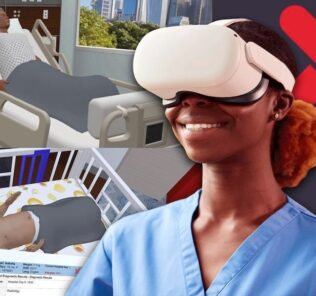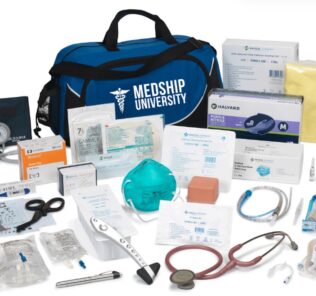Usability of a VR Simulation to Train Paramedic Students
Medical Simulation adds value to paramedic education in multiple ways, such as enabling independent, repeatable and less stressful training. Today, Mikko Myllymäki, M.Sc, RN, and CEO at VR4Healthcare shares about his latest research on utilizing Virtual Reality (VR) to train healthcare students. Following this, we take a closer look at his start up VR4Healthcare!
Technology is developing faster than ever, which creates opportunities for healthcare education, but also challenges education providers to create and apply new learning environments. Virtual reality (VR) is a technology that possess great potential for healthcare education, but has been utilized and researched scarcely in this context.
A prototype VR simulation was created for this study. The purpose of this study was to describe paramedic students’ perceptions on the technical and pedagogical usability of a VR clinical simulation in training and testing the ABCDE approach competence. First year paramedic students (n=24) from the Savonia University of Applied Sciences in Finland acted as the research participants. The research data was collected in February 2018 by thematic group interviews following the simulation testing. The research data was analyzed using abductive content analysis.
Sponsored Content:
The average age of the participants was 23 and the gender distribution was relatively homogenous (m =13, f =11). The technical and pedagogical usability of the simulation were assessed to be satisfactory, even though some weakening attributes were also identified. Playing the simulation was considered to be technically straightforward and students learned it quickly. The graphical layout of the simulation was considered to be adequate, but students had trouble seeing some of the details in the environment clearly.Technical aspects of the simulation worked fairly well. Students felt that playing the simulation was a fun and positive experience.
Two students reported a slight eye pain after playing, but no other unpleasant physical side effects were reported. Students felt that they controlled how the simulation progressed and it gave them a clear targeted learning outcome. Students felt immersed in to the simulation and reported a sense of presence in the virtual environment. The scoring system as a summative feedback was found to be inadequate,which degraded VR-simulations educational applicability and reliability to measure competence.Simulation added value to paramedic education in multiple ways, such as enabling independent, repeatable and peaceful simulation training.
Virtual reality was verified to be a suitable simulation environment for use in healthcare education. VR simulations seem to complement the traditional simulations and the two teaching methods can be seen as complementary to each other. Study participants expressed hope, that VR simulations would be utilized in paramedic student education, but not in a way that would fully replace any existing teaching methods. It is recommended to continue developing, researching and utilizing VR simulations in healthcare education. Learn more about Mikko’s Research on VR Training for Paramedic Students. (Note: Article is in Finnish)
Sponsored Content:
About VR4Healthcare
VR4Healthcare creates high-quality, evidence-based and cost-efficient virtual reality training environments to be used in global healthcare education. Medical simulation is the golden standard of healthcare education, but at the same it consumes a lot of resources (time, money, space). These VR-simulations offer many advantages compared to traditional simulation training. Students are immersed in life like healthcare situations in their simulation experiences, where they can test and train their skills. Like in real healthcare settings, students are part of a multi-professional team trying to solve different scenarios. In VR-skill labs students are able train specific healthcare procedures and skills without limitations. Students are able to repeat rehearsing as much as needed in order to gain the skills and self confidence needed.
Visit the VR4Healthcare Website to Learn More Today!
Today’s article was guest authored by Mikko Myllymäki, M.Sc, RN, CEO at VR4Healthcare.
Have a story to share with the global healthcare simulation community? Submit your simulation news and resources here!
Sponsored Content:

















